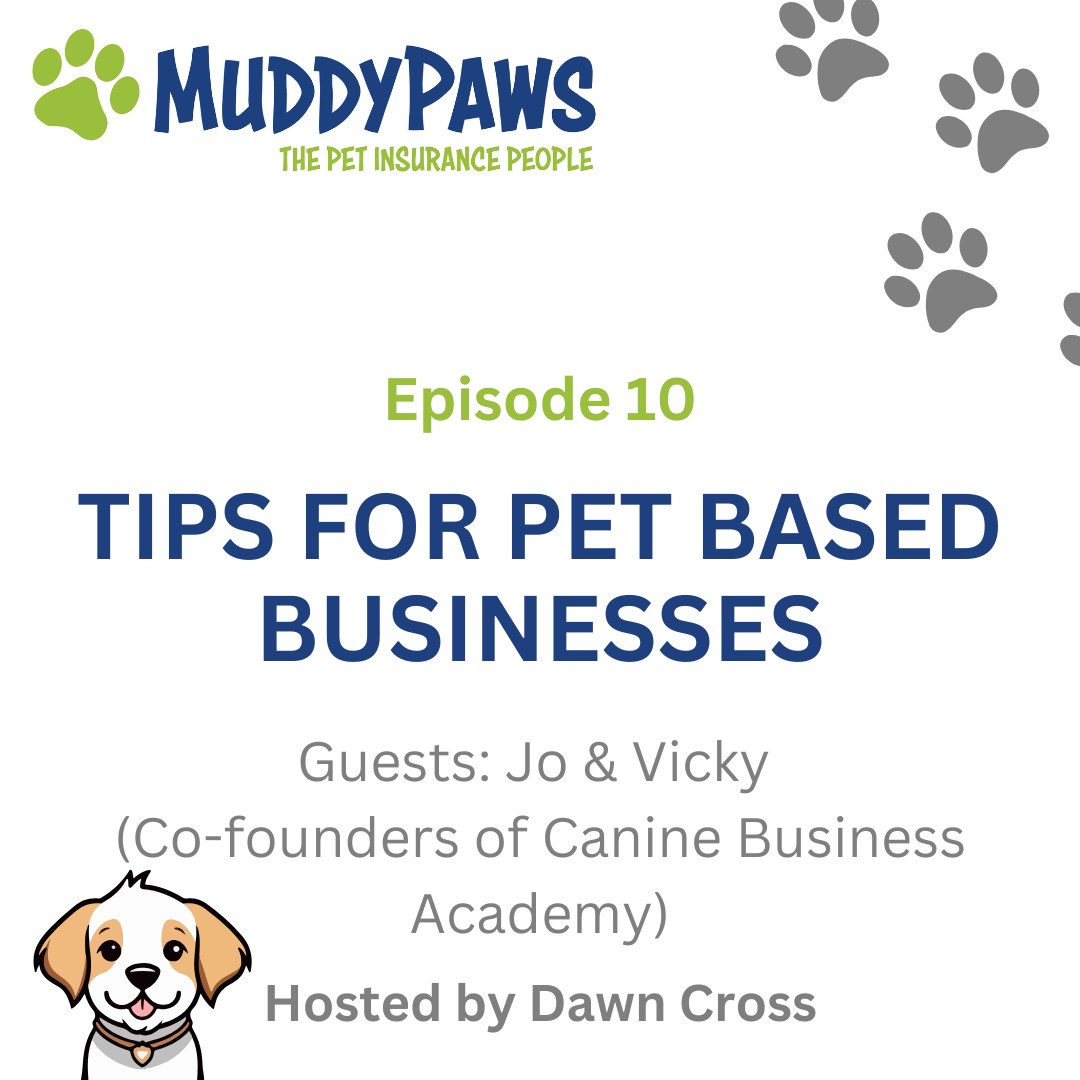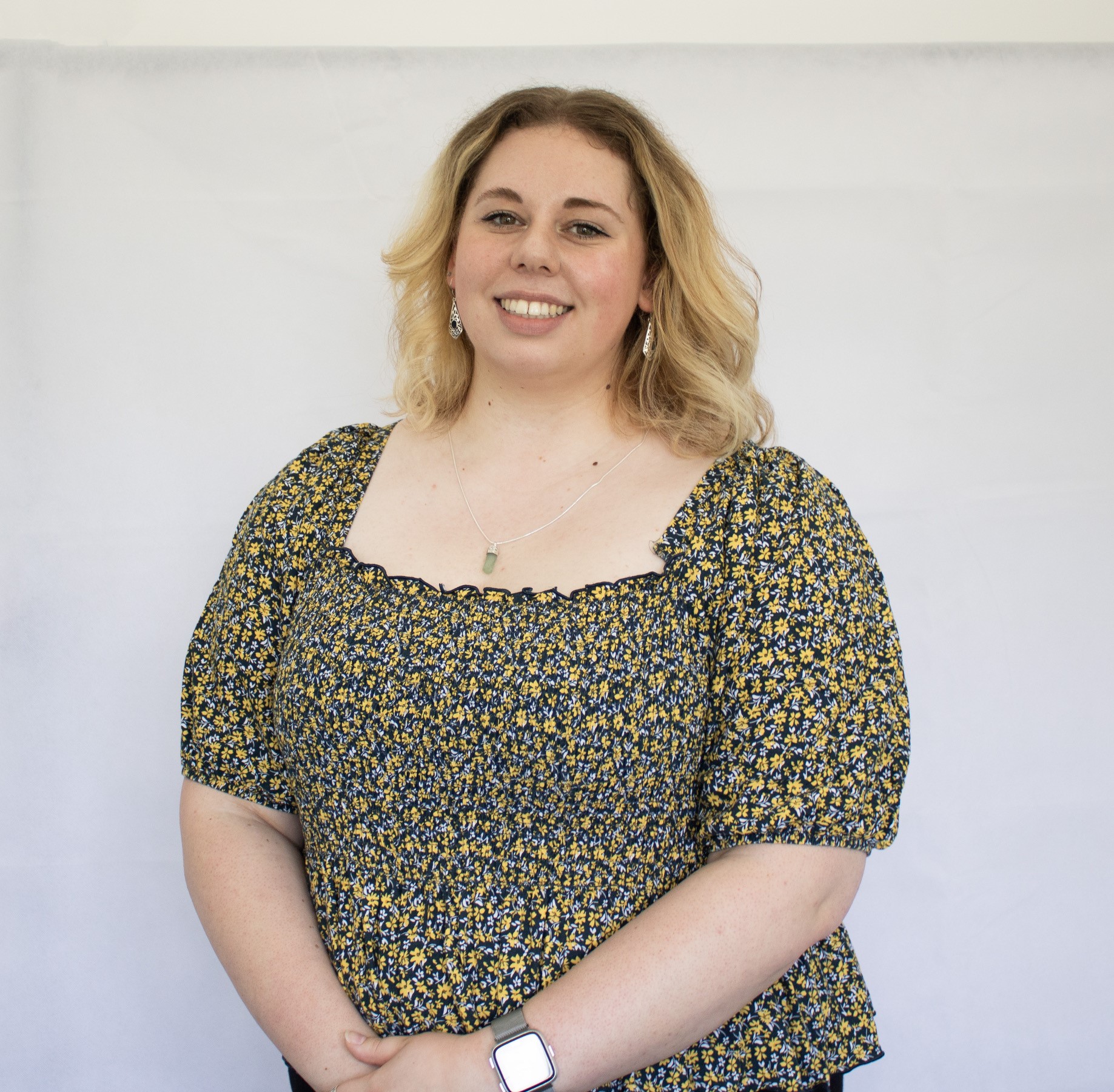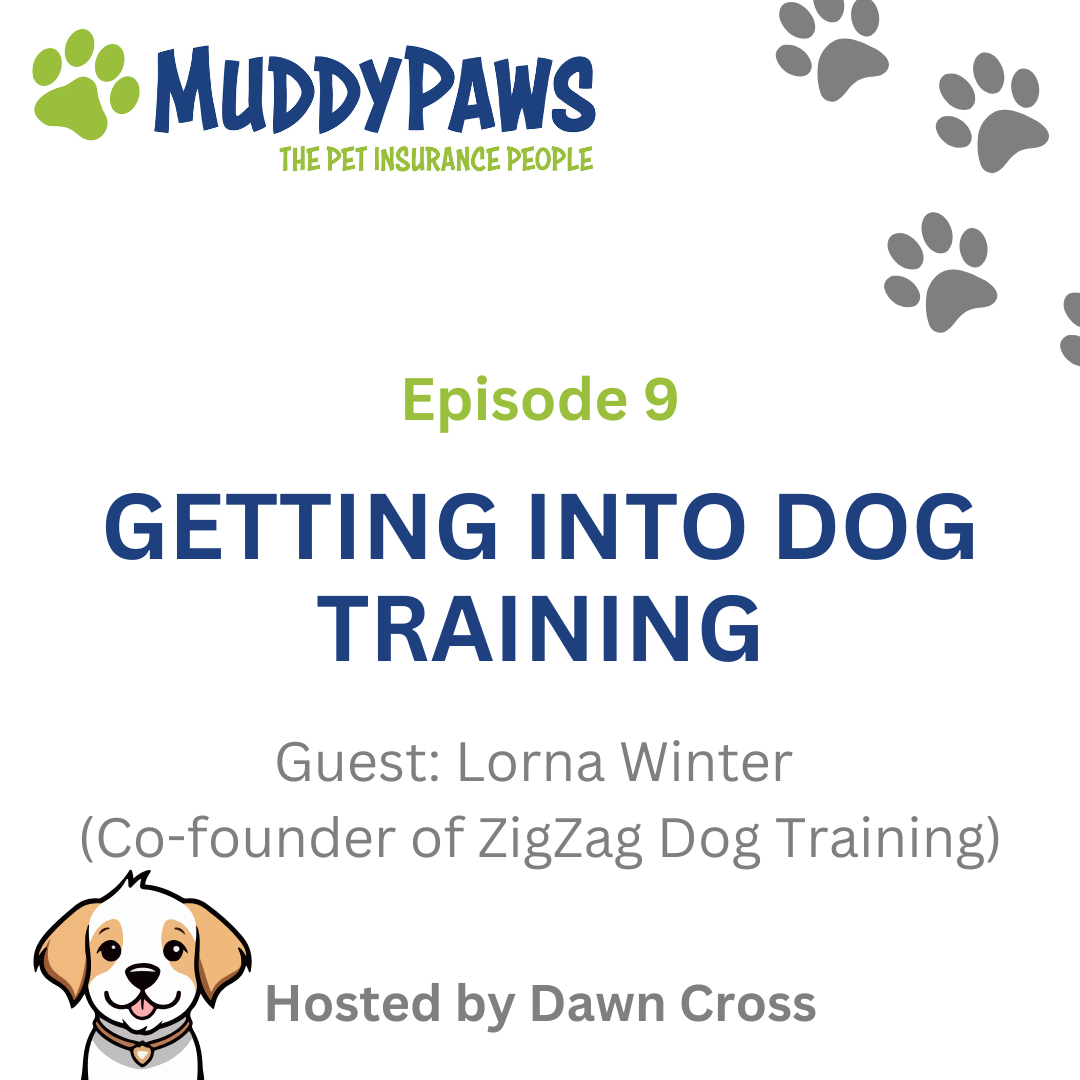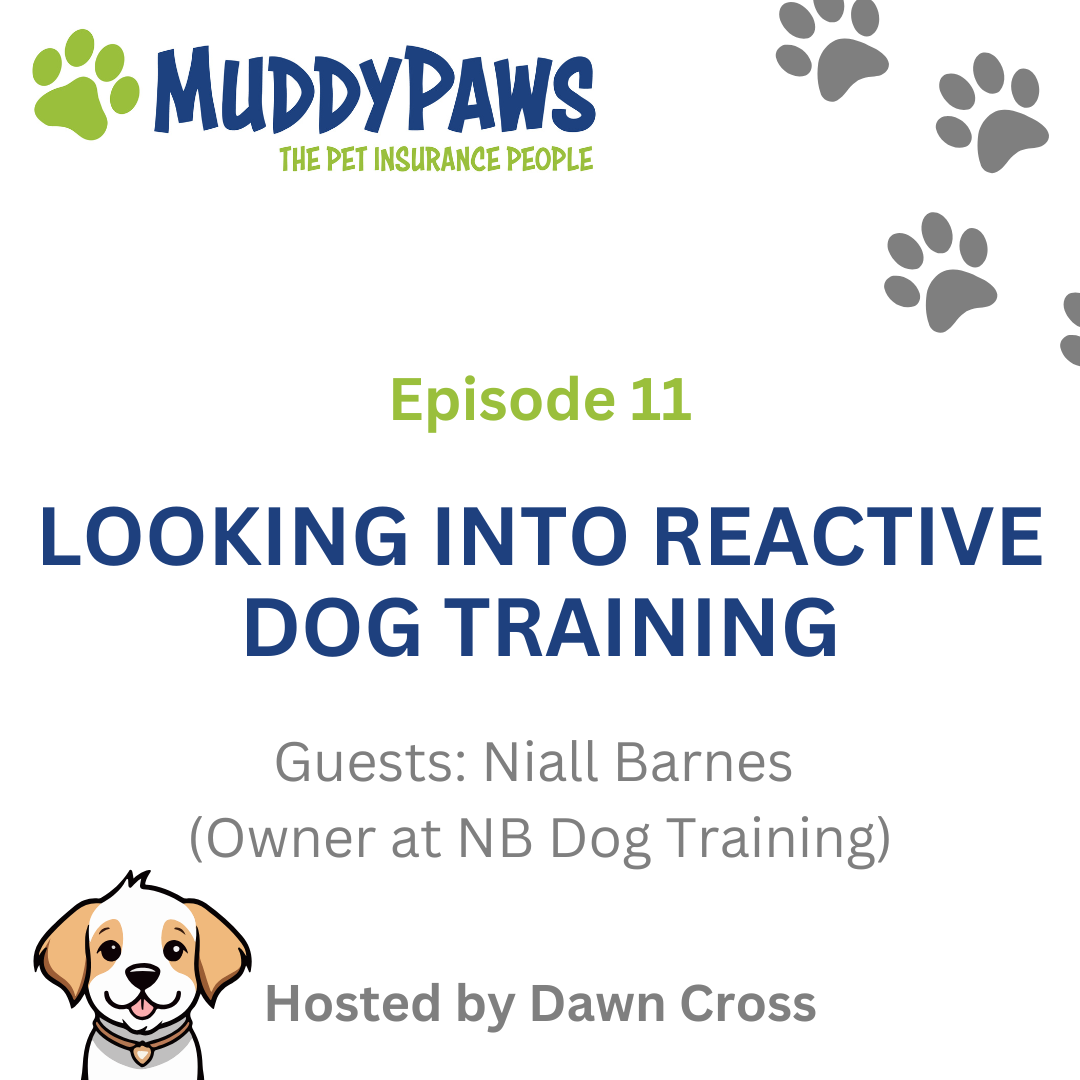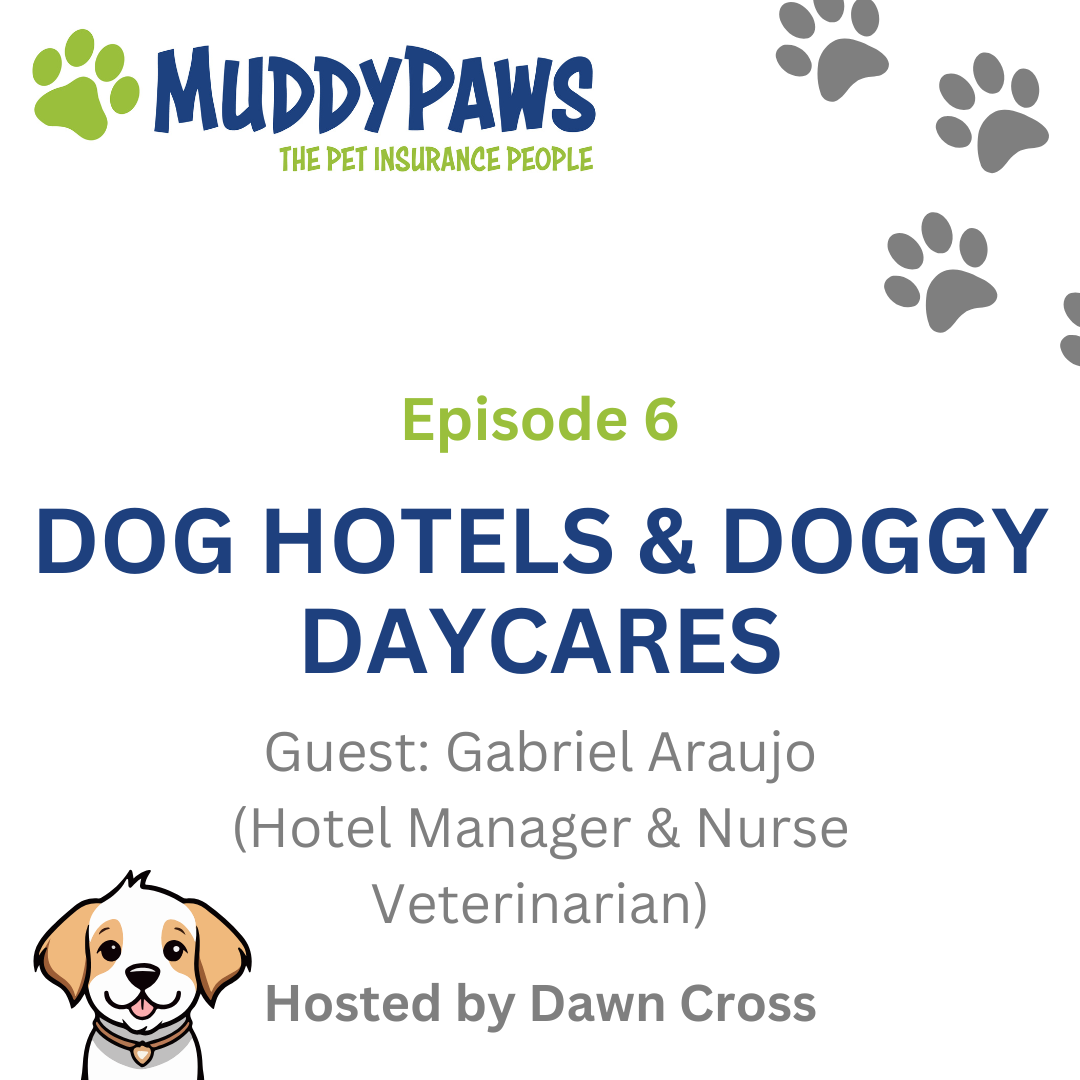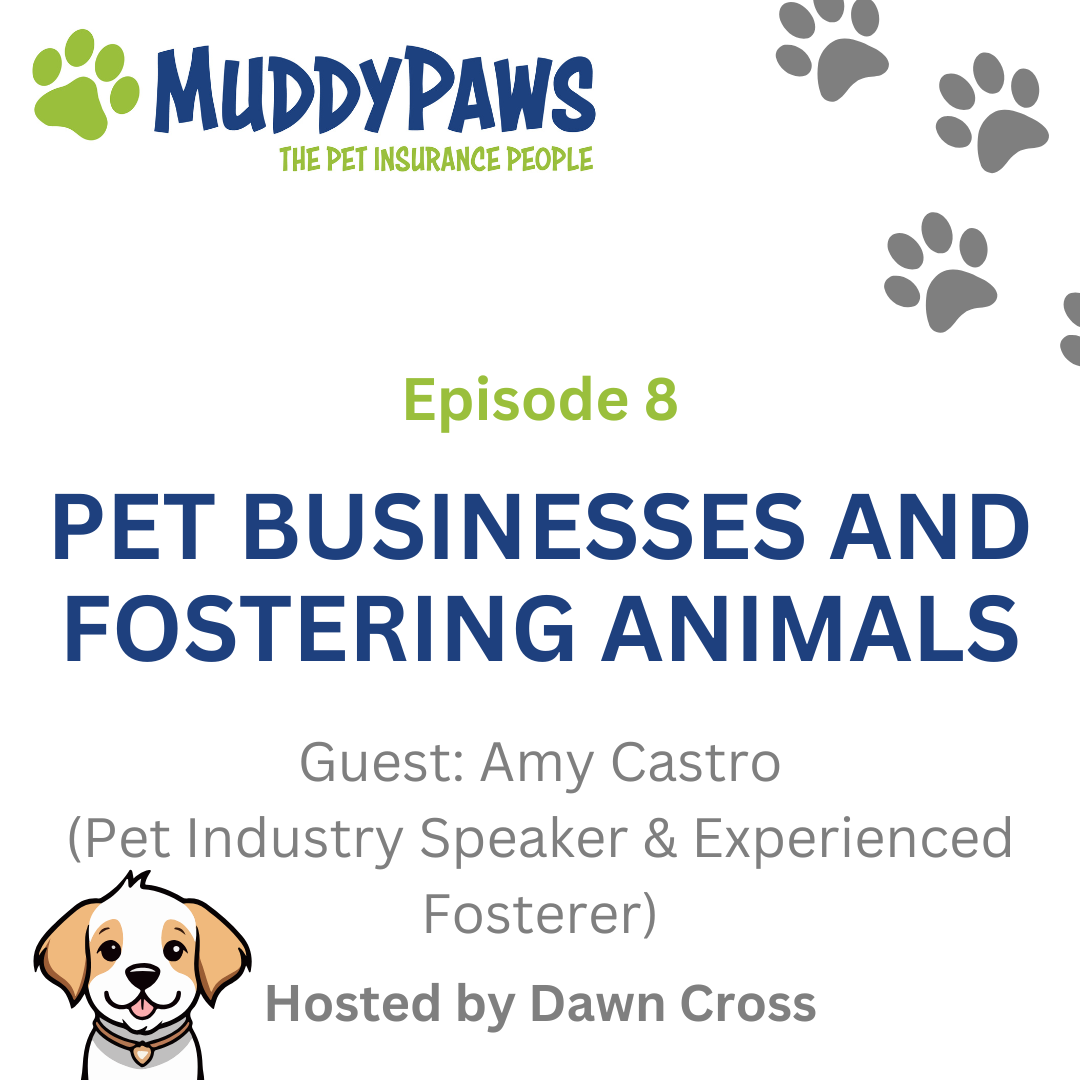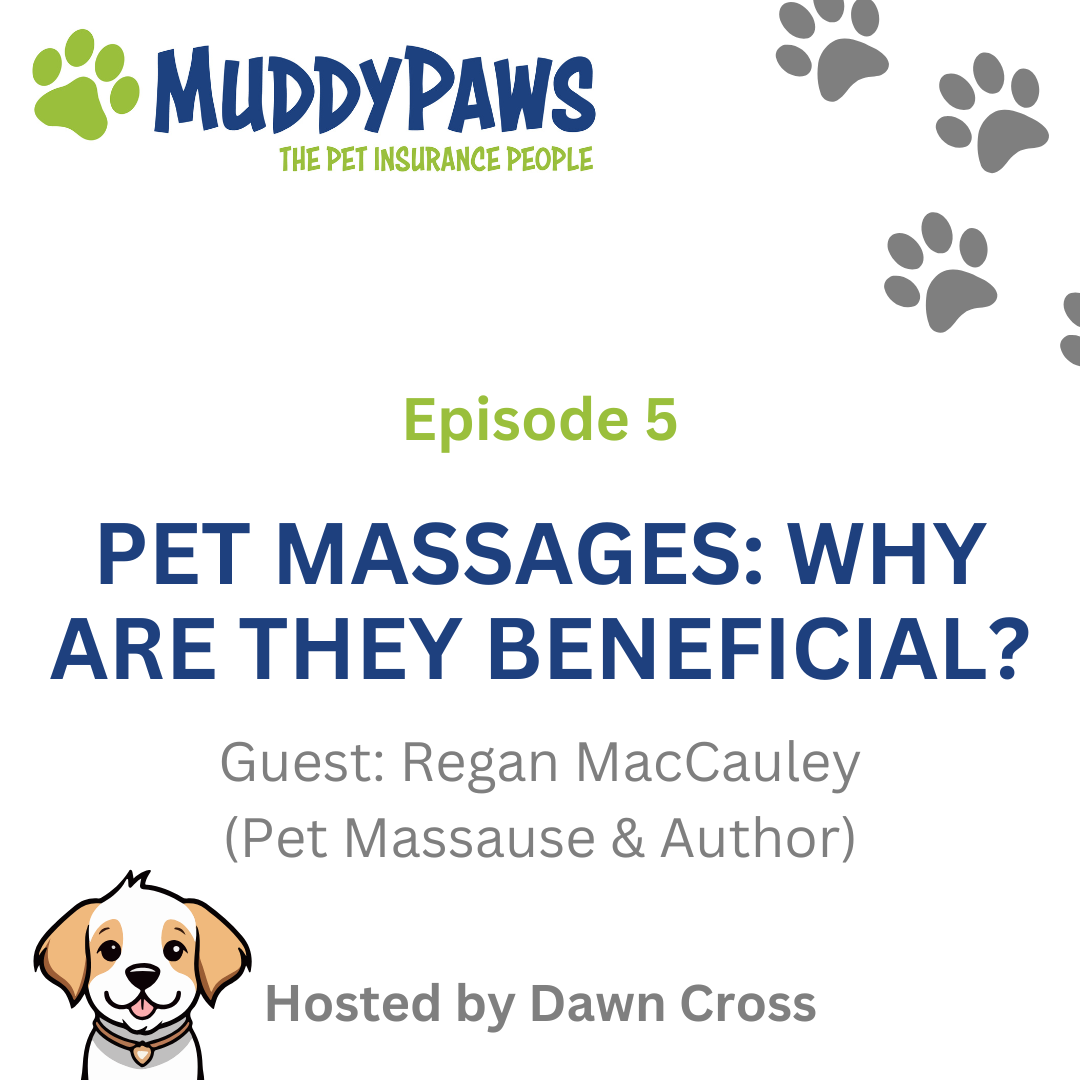Episode Transcript
[00:00:00] Speaker A: Welcome to the Muddy Paws Insurance podcast. I'm your host on cross and today I'll be flipping to the other side with tips for pet based businesses with Joe and Vicky, who are co founders of the Canine Business Academy.
If you enjoy our podcast, make sure to leave a rating on your favorite podcast directory.
[00:00:22] Speaker B: Brilliant. Well, thank you both so much for coming onto our podcast. If I could get you guys to start off by introducing yourselves with Vicki, if you'd like to go first.
[00:00:30] Speaker C: Yeah. My name is Vick. I am one half of the Vicky and Jo duo of Canine Business Academy and we support struggling dog owners, predominantly dog owners, dog trainers, predominantly with their businesses.
[00:00:45] Speaker D: No. So, hi, I'm Jo. I'm the other half of the Joe and Vicky duo. Get the the right way around of K9 Business Academy. And yeah, like Vicky said, our mission really is to inspire change within the dog industry and allow dog professionals to, to ultimately have a business that they love which gives them more time, money and freedom. And that love of dogs back, I love that.
[00:01:11] Speaker B: How did you guys come up with the concept in business then?
[00:01:14] Speaker D: Oh, it's a good one, isn't it? So Vicky and I have been working in the dog industry now as trainers or behaviorists or whichever title people prefer for collectively 27ish years now, which feels incredible amount of time. And from being on the ground and just really getting into the nitty gritty of everything, we, we always knew that the industry was lacking in terms of business support, in terms of guidance, in terms of actually just having somebody there to support you when you've got questions on what do you do if you've got a difficult client, because a lot of the accrediting course providers that are out there, they're not really geared up to give you that information because they're there to give you the information around the dog knowledge and how to deal with the dog. So we kind of went about our own ways in our own separate businesses for years and met up and found out that we have the exact same view on, on everything, on everything that I've just said. And out of that Canine Business Academy was born. And we thought we can try and plug the gap to be that support system for doc professionals out there who genuinely want more from their business and who genuinely want to work with clients that they love. And it's okay to earn money from it. It's not a dirty word. It's okay to have some time back for yourself and to not give everything to your clients. So that's where we are today.
[00:02:49] Speaker C: Wow.
[00:02:50] Speaker B: I Love that. That's absolutely amazing. I think as well, you know, with any sort of industry, there's a lot of coaches and people that will coach, but you tend to see coaches, mostly business industry, where you're like, oh, if you're scaling a business, but, you know, they're not necessarily targeted for, like, the type of business. So it must be amazing. You guys have worked within yourself and then realized the bigger picture of, you know, we need people. The people, the people need extra support and everything else.
[00:03:21] Speaker C: Yeah. And I think we do relate to our industry because we are. I mean, we effectively could work with anybody with their businesses, but because we are in the dog industry, people are kind of drawn to us and because we've got different journeys that brought us to the dog training world. Like, I worked in rescue, so my background was kind of seeing all these dogs ending up in rescue and wanting to do the right thing by puppies that were coming into the world and preventing them ending up there. So that was kind of my passion of. Of doing all that preventative stuff. And I started doing the dog training stuff. The traditional route, I would say, just kind of getting work here, there and everywhere, not really having any direction with the business kind of going, I want to help the dogs, I want to help these owners keep these dogs in the home. Whereas Joe has come from a very different background in corporate and has a very sort of, I would say, like, her business brain is. Was. Was much better than mine at the time we met. And so having transformed both of our businesses independently into this amazing model that worked really well for us and brought in that income that we wanted and gave us that time and freedom, we really wanted to share that with others, having done it ourselves. And it was that real passion to know that it's possible and to. We say this a lot, like, get people thinking a bit more creatively about their businesses and going like, you can do whatever you want, you don't have to do what everybody else is doing. And that's kind of the key to being a good business owner, because if you stand out and you've got something different to bring to the party, then people will come flooding in.
[00:04:55] Speaker D: So, yeah, and actually to add on to that as well with the. The business coaching space within the pet industry, essentially, because I don't.
I'm gonna stick my neck out and say, there's very, very few business coaches, coaches predominantly focused at dog trainers and behaviorists. And we decided that that was going to be the niche that we wanted to concentrate on because ultimately that's that's who we are, that's who we were. It's in, it's in our blood. So what we found was the, the information that was coming from within the pet industry, in our opinion is actually stagnated information. It's stuff that is really archaic. And when Vicky and I look back over our journey of being these freshling dog trainers, the information is still exactly the same and that's going back a long time. It's like over a decade yet the industry hasn't moved forward and we're still seeing the same advice given, which was given like we say like 14, 15, 17 years ago. And for us it's just not good enough. So we thought we're going to come in and shake it up a little bit.
[00:06:10] Speaker B: I love that. And you know, especially if the advice is stagnant, it's so much has changed within, you know, 20 years and if the nasty and how people look after their pets even, or, you know, especially when, you know, covert hit and everything else, everyone got pets to keep them company, which is great. But then they saw like a rise of separation anxiety as well. So it's like, you know, there's a whole new kind of world of problems and like different things for them to tackle and, you know, they're still doing this things the same way that they should. You know, you need to be able to adapt and evolve to how things progress, don't you?
[00:06:45] Speaker C: Yeah, absolutely. And I think it's, it's again, it's the knowledge is there. So like all of these dog trainers are consuming so much knowledge that it actually ends up. We're finding it's ending up confusing them with what they actually want to do. Because they could do a course in separate separation anxiety here they could focus on reactive dogs here they could do some like, there's all these different specialism, bit scent work, a bit of, you know, agility, whatever, and they don't really have a sole focus. And so we get a lot of imposter syndrome in this industry and we realize that it comes down to the fact that it. Well, it's judgment from other trainers. First of all, that's like a big, there's a big toxic thing in this industry about that, but it's also not knowing what to focus on and feeling really overwhelmed and then feeling you don't know enough about anything. And it's this jack of all trades that we talk about quite a lot and we encourage people to think about the thing they really love and go all in on that. And if you've got the passion for it and you've got the. I was actually talking to a dog trainer today who's niched into working with just poodles and poodle owners. And when she started it, she said it was a bit scary because she didn't know whether it was going to work, whether there were enough poodles. And she's attracting all these people from America because she does most of her work online and she is now the go to person. If you've got a poodle, like, people go to her and she's grown this amazing follower. She's got 14,000 people in a Facebook group of poodle owners that are all clambering to work with her. And it's just, yeah, if you can get that, like, passion and you can feel really confident to go all in on it, you can do so many great things with it.
[00:08:29] Speaker B: That sounds brilliant. So I guess my, my main question for you guys today is, you know, what are dog professionals missing when it comes to their business? Like, what is the key thing that you see over and over again that people tend to forget about?
[00:08:43] Speaker D: One thing.
[00:08:44] Speaker C: I was gonna say there's so many.
[00:08:46] Speaker B: There'S probably like a whole bunch. But I figured if we focus on the one thing to start with, I.
[00:08:51] Speaker D: Think the one thing is probably what Vicky was just alluding to there about not being niche enough. And I think it's, it's a scary word. It's a word that is commonly associated with business coaches. Why? Which is why I think it's got some negative connotations attached to it. But the reason behind that niching is we started talking to people now and referring to them as essentially like a general practitioner. So if you're going to go to your gp, you're not necessarily going to get the best service. You're going to attract a lot of people that you may like working with. You're going to attract a lot of people that you won't enjoy working with. You're going to attract people that will never work with you. And you're thinking, oh, they will because they've inquired. But then we're confusing that, that audience that we've attracted by being so general, by then offering them a million services, by going, oh, well, you could come and join this class. Oh, but we've got this class as well. Oh, and then we've got this class. Or you could do one to one, or you could buy this one to one, or it's an adult or it's a puppy or it's an Adolescent or it's a workshop and it's. The list just goes on and it all boils back down to not knowing who you're talking to. It's that, it's that niche work which is very closely aligned with your ideal clients. Like who are you wanting to work with, what you know, Even if it's not as specific as identifying a certain breed of dog, you could niche into a certain type of person. So it could be busy professionals that are out all day and you're going to go in and do the training on behalf of the owner because they're never going to do it. Or it could be families with kids and you just really want to help the family have an awesome time with their dog. So it doesn't always need to be breed or behavior specific. I mean it can be, and this is the fun part about it, that you get to really go in on that one thing that you're really good at. And for us, we genuinely believe that if people did that, it would banish imposter syndrome because it's impossible to not feel like a expert when it's all you're talking about all day, every day.
[00:11:09] Speaker B: Vicki, was there anything you wanted to add to that or has Jo covered that beautifully?
[00:11:14] Speaker C: Yeah, I think it's, it is that it comes down to that niching and the ideal client work definitely. Because it's. I think back to when I had all those services. Pretty much the list was like as long as my arm of all the things and because like I said before about the knowledge bit where the industry is really great at bringing out the latest scientific knowledge and helping you learn about this kind of angle and that kind of angle. What it does is it just, it just confuses and it just dilutes. It dilutes the message. So the messaging is never clear. And it actually probably also has a domino effect on people's confusion around like what to post on social media because they don't have a clue about what it is they really want to do. So they are talking about all these different things and people aren't hearing any of the information. And if you go on a dog trainer's website, you invariably lose track of all the tabs because there's that many different choices and, and then each tab's got a drop down of five other different choices and you've got an owner landing on a website and just being completely overwhelmed with it and going like, I don't know where to go next. So then they get a message saying, I've landed on Your website, I don't know what to do, what I need. And then the dog trainer gets really annoyed that the owner doesn't know what they should be doing. So a lot of the. I suppose this also comes down to the, the way we treat our clients as well. And I don't mean outwardly, but I mean behind the scenes because there's a lot of bad, bad press about clients. There's a lot of blame game about them. It's the client's fault. It's. They're not doing the work, they're rubbish. They. They aren't committed enough. And actually if we were putting ourselves more in the client's shoes and seeing how it was from the customer journey point of view, then maybe we would get the clients we really want and we would get them committed and we get them doing all the amazing things that we hope they will do. So I think it's just a lack of understanding of that clarity, who it is you're talking to. You've got no niche and you don't know exactly where you're trying to take them and how you're trying to take them through that journey.
[00:13:19] Speaker D: Yeah. And I think this actually kind of goes back to what we were saying earlier about the advice that's out there as being really dated because all we're essentially told to do is, I'll go and have a look at what somebody else is doing. Mimic that a little bit and put your prices on, on average, like, don't be too high, don't be too low. Can I go just somewhere in the middle? Idol, I'm like, we're just creating vanilla people. We're creating more and more GPS that is ultimately affecting the dogs that we all care about so much.
[00:13:54] Speaker C: And I do have to caveat this with if there's any GPS listening, no offense.
[00:14:01] Speaker D: Actual GPs, like Dr. GPs or are we still on the.
[00:14:05] Speaker C: Well, obviously the way you just said that sounded like you meant that GPS are vanilla and we didn't mean that. That.
[00:14:10] Speaker D: Well, I do kind of mean that as a service bit because again, it's. No one's gonna. This is why we, we end up struggling in this industry by going, I'm not getting enough inquiries. I'm not doing this. And it's because we're not attracting anybody by, by being too vanilla and too general. We're actually turning people away. And then it's never going to help your business grow because. Can't believe you haven't actually said it yet, Vic. Ultimately what ends up happening is everyone's Scratching around for business.
And that's not what we want.
[00:14:46] Speaker C: Our favorite words.
We think it's a Midlands thing as well, because we thought everyone knew what it meant. And then we were talking to some of our clients about it and they were like, what? Scratching?
[00:14:55] Speaker D: I don't even think it's a Midlands thing. I tested it out at you today and there was like, what? I was like, okay, it's just.
[00:15:01] Speaker C: Okay, maybe it is just a n.
[00:15:05] Speaker D: So I think ultimately the, the key thing that dog professionals are missing is, is that niche. It's that specialism. It's that ideal client work that goes alongside that niche. Because if you get that, then everything else is, I'm going to say, easier to implement. But that's the, the key point.
[00:15:24] Speaker B: No, I definitely agree. I think is, you know, when you're thinking about doing any sort of business, if it's way too broad, you're not necessarily going to be getting the right kind of people or you're not going to be ideal client that you want to work with as well, because you might attract people that you would actually find really hard to work with. If you kind of, like you said, niche down, you can actually be able to thrive more in your business. You're more likely to be probably happier delivering the services as well. But also it means that, you know, people are going to come away very happy because you've got that really good connection with the ideal client that is coming to you rather than just generic. And then you get people that you may not gel well with or may not like your methods or fight you every turn. That sort of thing.
[00:16:05] Speaker D: Yeah, exactly that. And it's, it's one of those things where it just. It really upsets me that we end up turning people away. And it upsets me that people think that by going niche you're going to lose work because it's that, oh, but where am I going to get all this stuff from? But it's that again, like with Vicky mentioning about that, that lady earlier with the poodle example, like, it's exploded. It's. It's such a good thing to be known for. And I think something to be really mindful of with niching is that just because you pick a niche, it doesn't mean you're stuck with it for life. You can change it. It will naturally evolve. In fact, Vicky and I were talking earlier about how our niche is already starting to take a tiny little bit of a. A twist and turn.
[00:16:55] Speaker C: As long as a micro niche.
[00:16:57] Speaker D: A micro niche, that's a good way of putting it. Yeah, there's like a niche within the niche is what I was going to say. But micro niche is much simpler.
[00:17:05] Speaker B: It's how you evolve as a business though, isn't it? It's like, you know, if you change up or you actually see that there's a new micro niche to you to pop into, you know, why, why not, why not go for it?
[00:17:17] Speaker C: Yeah. And it's been open to it evolving as well. And also tracking, tracking the data and tracking what's going well and what isn't going well and tracking what you're like. Even when you've got one passion, there are other little branch passions that will come off. So if those are sort of lighting you up more, so maybe that needs to kind of be the direction that you, you end up going in. And I think it will. If you listen to the business and you listen to what's happening in the business, you will definitely, yeah, lead yourself in the right direction. Basically.
[00:17:48] Speaker D: People don't themselves in the business.
[00:17:53] Speaker C: Actually, one thing I did want to add, if that's okay, to the bit about what they're missing. We often say this, that dog trainers really lack in because they don't really know how to run a business because it's invariably a hobbyist kind of thing that people start on the side. A lot of people just do it alongside another job and then eventually go all in on the dog training or never go all in. And they, they don't really have a clue how to run it like a business. And therefore there are no parameters, there are no set expectations for clients. They're very much like, oh yeah, we'll do it like this, we'll do it like that, like pay me by cash or pay me by backs or yeah, we're booking the sessions whenever is right for you. And, and actually what that does is it gets people in a real pickle because there's no, I mean people aren't for one getting any kind of receipt, they're not getting an official invoice, then there's nothing that actually seems very like it's running like a proper business. And also the thing about not having a structure to booking sessions. So if you've got like a program where you've got a six month amount of time with somebody for over six months or something and you don't book the sessions in and you leave it to them, what happens when the client gets busy and they forget to put the sessions in and you haven't factored them in and then all these other people Come in and you go, oh, no, I'm. Now, now I need to fit these people in that I didn't do. Or you don't hear from them and you don't know whether they still want to do it or not. And like, we have those conversations all the time because there's no professionalism there. And actually the client is waiting for you to guide them. When you buy into a service, it's your duty as the business owner to lead that person in the way you want them to be led and feel confident that you're going to see them through. And I really feel with a lot of dog trainers that it's left to the client, which they're thinking, I see why they do it. Because they're going like, oh, we need it to be your choice. We need you to feel comfortable and everything. But actually doing that just leaves them in limbo a lot of the time.
[00:19:49] Speaker B: I think that's Stephanie key as well, is a lot of people quite passive about whatever they get up to. So leaving it up to chance can be a little bit like you say, you just kind of believe it and all of a sudden, you know, they haven't actually come to you in months. And it's best probably to be proactive because then at least the training as well. If, for example, it is a dog trainer, it will be consistent with the pet rather than it being stop and start because you're waiting for them to get back to you.
Well, thank you so much. So far. Have you guys got anything you'd like to add or anything you'd like to plug? I know you've got a book.
[00:20:24] Speaker D: Yes, so. No, we do have a book. We do have a book. It's a. I feel like I was gonna say it's a spin off of our podcast, let's Talk Dog Business. So the book is let's Talk Dog Business Strategy, because we really want dog professionals out there to not just implement the tactics. And by that, I mean, it's so easy to see all of this stuff on. On social media and what other people are doing saying, you've got to get your social media bit right, you've got. Got to get Facebook ads going, you've got to get Google Ads going, you've got to get your SEO stuff on the website, you've got to like all this stuff. And it's just so overwhelming. And the problem with picking up just the tactics is if it doesn't form part of your overall strategy, then they're never going to work.
So the way we kind of refer to it is imagine putting in an end destination into your sat nav. And the tactics then are how you're going to get there. But for a lot of us, we're just applying the turn left, turn right, don't know where I'm going. We'll just see where we end up. So the book is designed to walk you through the steps on how to create your strategy, essentially, so that you've got a plan that you can then create and more importantly, implement. Like, there's workable sections in that book that people can go away and start doing straight away.
[00:21:50] Speaker C: Yeah. And we're actually finding that people are using it as a workbook. They tend to read it through the first time and take it in and then go, right, I'm going to sit down and do the tasks. Because it does ask you questions as you go through. And it's designed to actually. Yeah. Use it as a. As a tool to. To make a difference, really. And, you know, I suppose as a spin off of the podcast, when we do our podcast, we. We talk about lots of different topics and they don't follow on from one another particularly. So one week we might have a guest and we're talking about mindset, for example, like personal development. And then the following week we might have a dog trainer who's talking about their business. And it doesn't. It's not always connected and it's not supposed to be because of the way the podcast of the nature of it, as I'm sure you know. So then we're. The book, it's kind of putting everything into this logical order. So it's all the stuff we talk about in the podcast, but it's going like, do it like this. You don't have to do it in the order it sets it out in, but it's there for a reason. And it is literally like that roadmap of taking you from one place through to your end destination, wherever that is, as Jo said, and know exactly what you should be spending your time and focus on. Because there's so many busy voices out there and the noise is so big nowadays, obviously with this digital age, everything is out there, everything's accessible. You're hearing this one minute, hearing that the next. What do you actually need to do? And this book is basically saying, these are the things. If you focus on these and you get them done like this, you will have this amazing business that you absolutely love and want to jump out of.
[00:23:23] Speaker B: Bed for the signs. Absolutely amazing. I think as well, it's quite a Testament to how much it is. Like you said, they go through it once and go for it again as like a workbook and like really get into the nitty gritty of it. And it sounds like it's a really valuable resource and I'm not even a dog trainer and I kind of want to read it.
[00:23:43] Speaker C: You're very welcome to read it.
[00:23:46] Speaker D: Yeah, no, we're really proud of it. It's.
I think we're proud of it for the reasons that the feedback we're getting and that people, people like Vicky said are actually using it and the fact that they're implementing things and seeing a difference, which is just incredible. So we feel really honored and humbled that people are taking us with them in their pockets, so to speak, and cracking on and doing all this stuff to stop scratting.
[00:24:15] Speaker C: And hopefully with a bit of entertainment along the way. We do try and make it light hearted and a bit funny and we, we have lots of outtakes of our podcast and as you can probably imagine. And it's, it's got to be fun though, the end of the day. Like we are trying to inject that fun back in because we know how many dog professionals, dog trainers predominantly, are really struggling. And then close to that, that feeling of jacking it in, like I'm. The amount of people we speak, we speak to a lot of people. We have conversations with so many people in the background and the amount of times that people are so low and when you reach out to them and you just listen, they feel so grateful that you've actually taken the time just to hear what they, that they're going through. And they're at the point where they can't afford to pay their bills. They are, their relationships are, you know, like loads of breakups we've had and it's come from the fact that they've got no money, they're working all the hours, they're not, they're not fulfilled, they've got these nightmare clients that they don't enjoy working with and it's affecting the home life to the point where marriages are breaking down and then being forced out the house and stuff like that. And you know, the more people that we hear about leaving the industry that are brilliant at what they do, we're just like. That is keeping us going with this whole mission of cba, as we affectionately call Canine Business Academy. CBA is to just stop that and keep people in it and just be. Yeah, keep people doing what they're so good at. And it's such a drive for us.
[00:25:45] Speaker B: Wow, that sounds absolutely amazing. Well, thank you so much for both of you for your time today and it's been really enlightening hearing kind of more of the business side of working with pets.
[00:25:56] Speaker D: Yeah. I hope people have found it useful. It's something that we obviously love. We jump out of bed for every single day. So, yeah, if we've helped you feel inspired to go and work on your business, then it can be fun then mission accomplished, I'd say.
[00:26:12] Speaker C: Yeah. Thank you.
[00:26:17] Speaker A: Thank you to my guests today, Jo and Vicky, for chatting about their knowledge and a few tips for the plant.
[00:26:22] Speaker B: Based businesses out there.
[00:26:23] Speaker A: If you'd like to know more about the coaching services, please click the link in the description.
I have been your host, Dawn Cross, so make sure to click follow for more episodes.
Muddy Paws takes pride in keeping things simple. Our goal is to provide a reliable insurance policy that is well delivered and gives you peace of mind. Intelligent underwriting, a user friendly application and outstanding customer service. Ensure we stand out from the crowd and provide the best for your furry friends.
